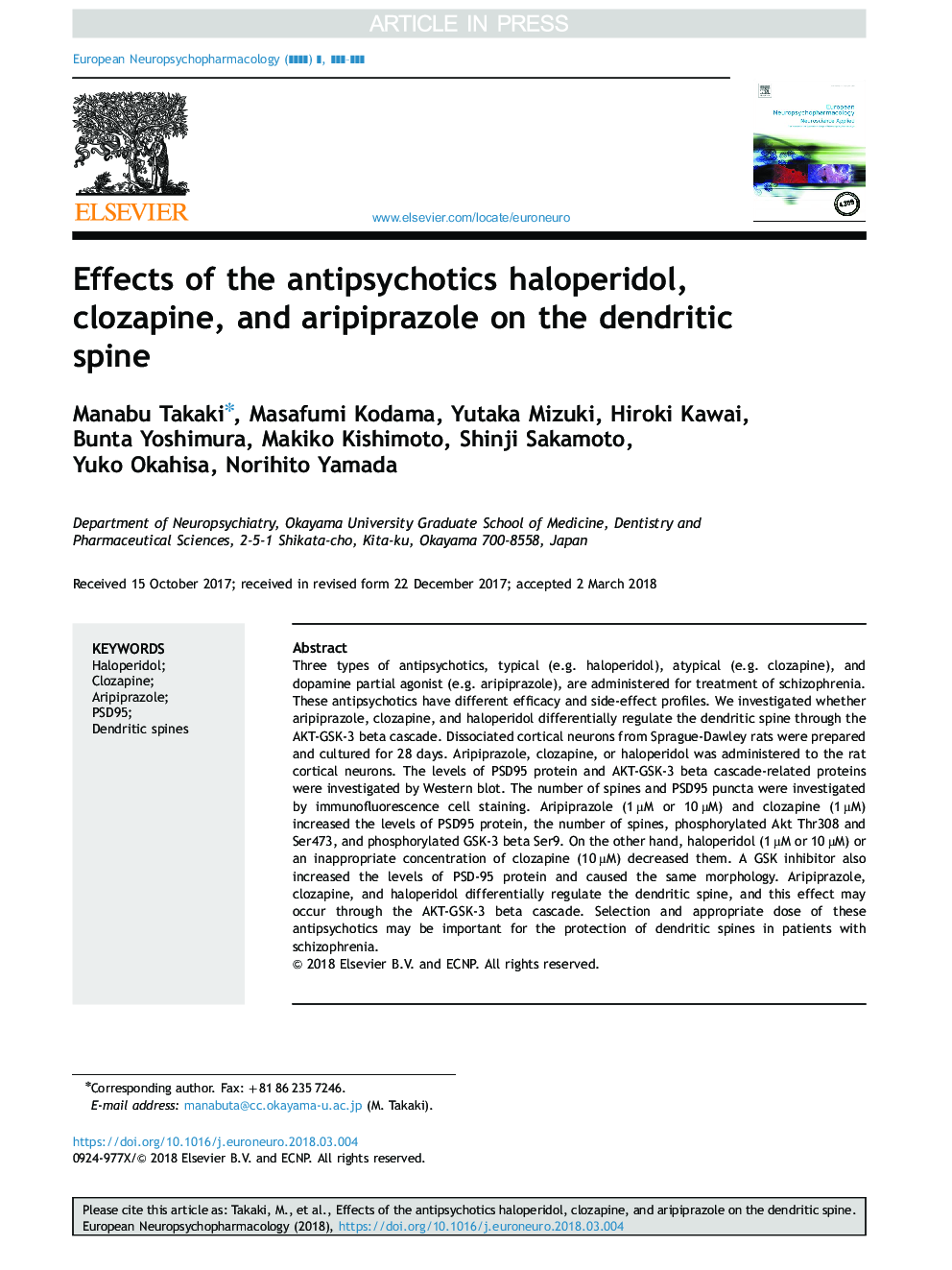| Article ID | Journal | Published Year | Pages | File Type |
|---|---|---|---|---|
| 6790686 | European Neuropsychopharmacology | 2018 | 10 Pages |
Abstract
Three types of antipsychotics, typical (e.g. haloperidol), atypical (e.g. clozapine), and dopamine partial agonist (e.g. aripiprazole), are administered for treatment of schizophrenia. These antipsychotics have different efficacy and side-effect profiles. We investigated whether aripiprazole, clozapine, and haloperidol differentially regulate the dendritic spine through the AKT-GSK-3 beta cascade. Dissociated cortical neurons from Sprague-Dawley rats were prepared and cultured for 28 days. Aripiprazole, clozapine, or haloperidol was administered to the rat cortical neurons. The levels of PSD95 protein and AKT-GSK-3 beta cascade-related proteins were investigated by Western blot. The number of spines and PSD95 puncta were investigated by immunofluorescence cell staining. Aripiprazole (1â¯ÂµM or 10â¯ÂµM) and clozapine (1â¯ÂµM) increased the levels of PSD95 protein, the number of spines, phosphorylated Akt Thr308 and Ser473, and phosphorylated GSK-3 beta Ser9. On the other hand, haloperidol (1â¯ÂµM or 10â¯ÂµM) or an inappropriate concentration of clozapine (10â¯ÂµM) decreased them. A GSK inhibitor also increased the levels of PSD-95 protein and caused the same morphology. Aripiprazole, clozapine, and haloperidol differentially regulate the dendritic spine, and this effect may occur through the AKT-GSK-3 beta cascade. Selection and appropriate dose of these antipsychotics may be important for the protection of dendritic spines in patients with schizophrenia.
Related Topics
Life Sciences
Neuroscience
Biological Psychiatry
Authors
Manabu Takaki, Masafumi Kodama, Yutaka Mizuki, Hiroki Kawai, Bunta Yoshimura, Makiko Kishimoto, Shinji Sakamoto, Yuko Okahisa, Norihito Yamada,
